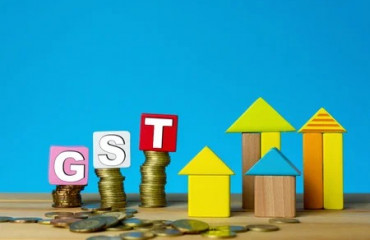
The GST Council aims to minimize tax disputes by issuing clarifications and addressing industry-specific issues, particularly in sectors like software exports and airlines
New Delhi: Federal indirect tax body, GST Council, is likely to meet early September to consider key issues such as expanding the tax base, issuing clarifications to minimize tax disputes, and evaluating the process of tax rate rationalisation, according to two persons familiar with the development.
Centre and states are looking at 9 September as the possible date for the meeting, one of the persons quoted above said on condition of anonymity.
At the last quarterly meeting of the Council, held in the capital, the federal indirect tax body discussed matters requiring legislative amendments so that they could be included in the Union budget presented on 23 July.
In the forthcoming meeting, to be chaired by union finance minister Nirmala Sitharaman, the Council will take up pending issues such as the need to look into the need for clarifications so that disputes arising from interpretation of the law are minimised, the person said. The Council is likely to look into the practices of specific industries like software exports and airline business, which have recently come into spotlight for the tax notices issued to some of the players. The agenda for the meeting is yet to be finalised.
A ministerial group led by Bihar Deputy Chief minister Samrat Chaudhary will provide an update on efforts to rationalise GST rates, which may lead to further discussions on rate revisions.
It is expected to be an extensive consultative process given that changes to the rate structure could mean major revisions in some others.
Experts said the Council meeting may give further momentum to reforms, addressing not only tax rate revisions but also compliance simplification and dispute resolution.
"The proposed review of GST rates aims to align the tax structure with current economic conditions, potentially reducing rates on essential goods while increasing them on luxury items to balance consumer relief with revenue needs," said Rajat Mohan, executive director at accounting and advisory firm Moore Singhi. Simplifying compliance, particularly for small and medium enterprises, could significantly ease administrative burden, enhancing ease of doing business and encouraging growth in this vital sector, he explained.
Key considerations include addressing duty inversion, where raw materials are taxed more heavily than finished products, which deters investment. The impact of past GST rate reductions since 2017 and inflation on the tax base will also be reviewed.
The recommendations will influence the Sixteenth Finance Commission's decisions on revenue sharing between the Centre and states for the five-year period starting 1 April, 2026.
The Council may also focus on reducing litigation, particularly in complex sectors like online gaming, said Mohan. "Overall, these agenda points indicate a strong push towards a more efficient, fair, and business-friendly GST system," he said.
Also read: Reset GST to make it a 'good and simple tax'
In line with the expectations set in the last Council meeting, the industry would expect some tax rate rationalization to be considered and possibly some regualarisation on instances of large litigation on the basis of powers under Section 11A, said Abhishek Jain, indirect tax head and partner at KPMG, referring to a provision enacted into GST laws to waive off certain tax dues.
